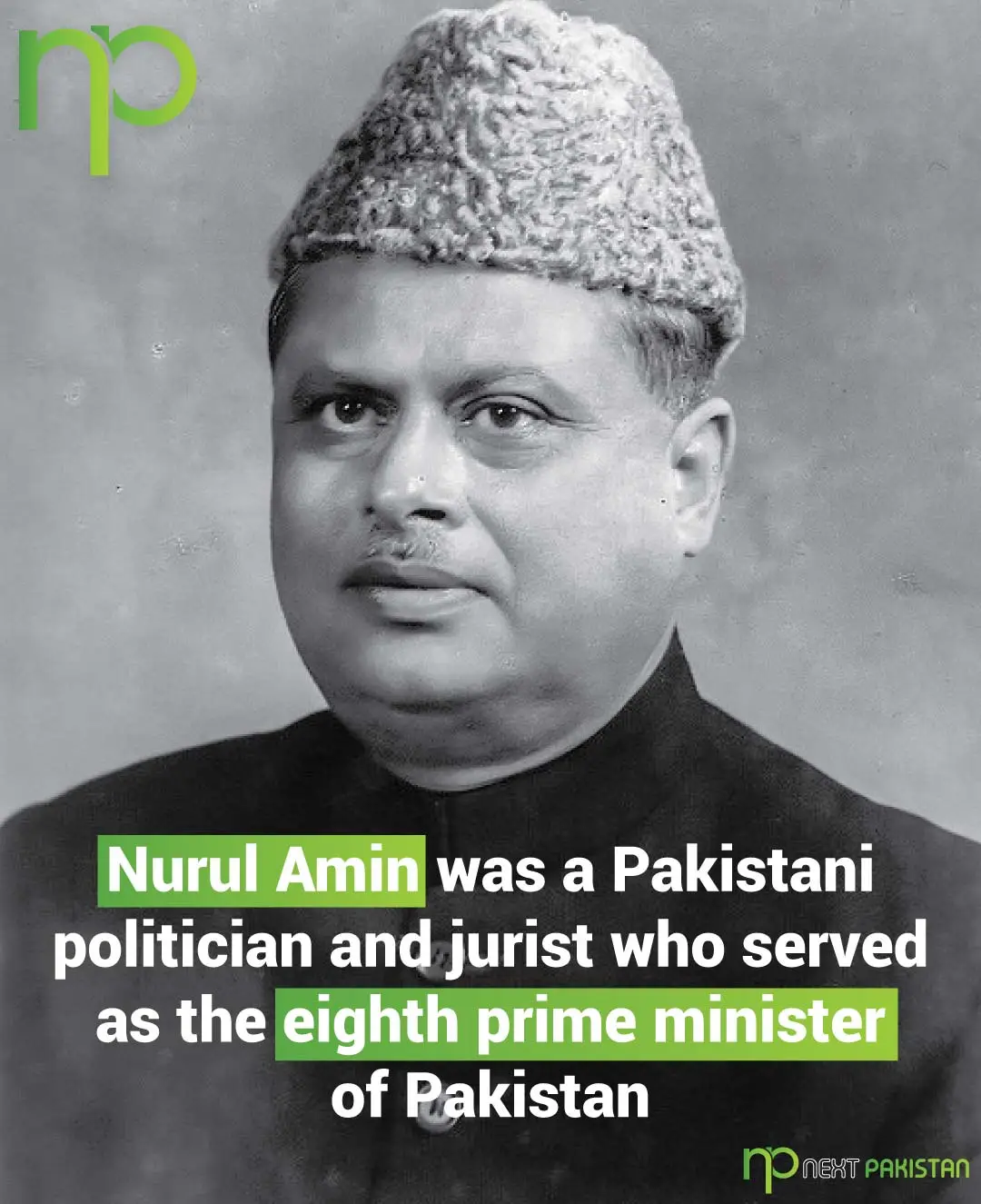


Nurul Amin was a versatile personality. After his studies, he started a job. Later, he left the job, started further studies, and joined a law firm. Later, they entered politics, won with a heavy mandate, and became Speaker. The gentleman has continued a tidy and splendid career throughout.
Nurul Amin was born on July 15, 1893 in Bangladesh. His family was from Bengal. Their village was Bahaurpur, situated in the Nandail. The father of Nurul Amin was a Zamindar.
Nurul Amin started his education at a school in his village. Later, he joined the Mymensingh Zila School, where he passed the college entrance examination in 1915. Later, Amin was admitted to Annada Mohan College and completed an intermediate in Arts. In 1919, he graduated in English Literature.
Nurul Amin started his professional career as a Teacher. Later, he decided to continue his career in law. Amin was admitted to the University of Calcutta to pursue his law career and completed his degree in 1924. After getting his degree in direction, he joined the Mymensingh Judge Court.
Nurul Amin remained a member of the Mymensingh Local Board in 1929 and worked hard. In 1930, he joined the Mymensingh District Board as a member. Again, he was
Later, the British Indian Government in 1930 made him commissioner of Mymensingh Municipality. Nurul Amin continued his progress and became Chairman of the Mymensingh District Board in 1937. He continued this post till 1945.
Working as Chairman, he leaned towards politics and joined the All-India Muslim League. Quaid-e-Azam Muhammad Ali Jinnah was leading the Muslim League at the time.
Nurul Amin took part in the elections in 1945 and gained a splendid victory. First, he joined the Bengal Legislative Assembly as a member. In the following year, the assembly selected him as Speaker.
In East Bengal, Nurul Amin became the right hand of Muhammad Ali Jinnah when Jinnah was fighting for the rights of Muslims under the rule of British India. Amin worked hard to bring Bengali Muslims to strengthen the Muslim League.
Amin assisted Muhammad Ali Jinnah in their visit to Bengal, where Junnah promised the Bengalis the formation of a democratic country.
In September 1948 Muhammad Ali Jinnah died. Khawaja Nazimuddin, nominated Nurul Amin as Chief Minister of East Bengal. After the death of Liaquat Ali Khan, the Governor General of Pakistan, Khawaja Nazimuddin, appointed Amain as Minister of Supply.
Nurul Amin contested the election of the Pakistan National Assembly and became a member. Being Chief Minister, Amin’s government highly influenced the central government. He has loose control and mostly follows the directions of Khawaja Naimuddin.
Due to weak control, Amin could not control the increasing influence of the Communist Party. Finally, in 1952, the Communist Party launched the language movement supported by a massive Bengali community.
Two major parties in the 1954 elections were the United Front and the Muslim League. The United Front has defeated the Muslim League. Under the influence of the United Front and the Bengali movement in 1956, Pakistani authorities implemented many reforms, including making the Bengali language official in parallel with Urdu.
Amin contested the presidential elections in 1965 and attained a massive victory. Amin became the opposition leader after the death of Fatima Jinnah. He remained the opposition leader till 1969.
In 1970, Amin won the National Assembly seat, but Bengalis disliked Pakistani authorities due to the suppression of the Bengali language. The language movement continued, ultimately resulting in Civil unrest. It eventually resulted in the Declaration of Independence.
President General Yahya Khan appointed Nurul Amin as Prime Minister on December 6, 1971. This position remained for a very short time. Yahya Khan resigned on December 20, 1971, as Zulfikar Ali Bhutto became the new president. Bhutto was the Deputy Prime Minister and Foreign Minister at that time.
Bhutto has appointed Nurul Amin as Vice President of Pakistan. He remained in the new post till August 14, 1973.
Amin died at the age of 81 due to cardiac arrest. He died in Rawalpindi on October 2, 1974. Prime Minister Zulfikar Ali Bhutto gave Amin a public state funeral. As a special tribute, a splendid tomb was built for Nurul Amin using Italian white marble, with golden letters to write his name and contributions.
Nurul Amin was a trusted fighter of Muhammad Ali Jinnah in Bengal. He did tremendous fighting for the cause of Pakistan. He has proved to be a loyal, hard-working, and intelligent statesman.